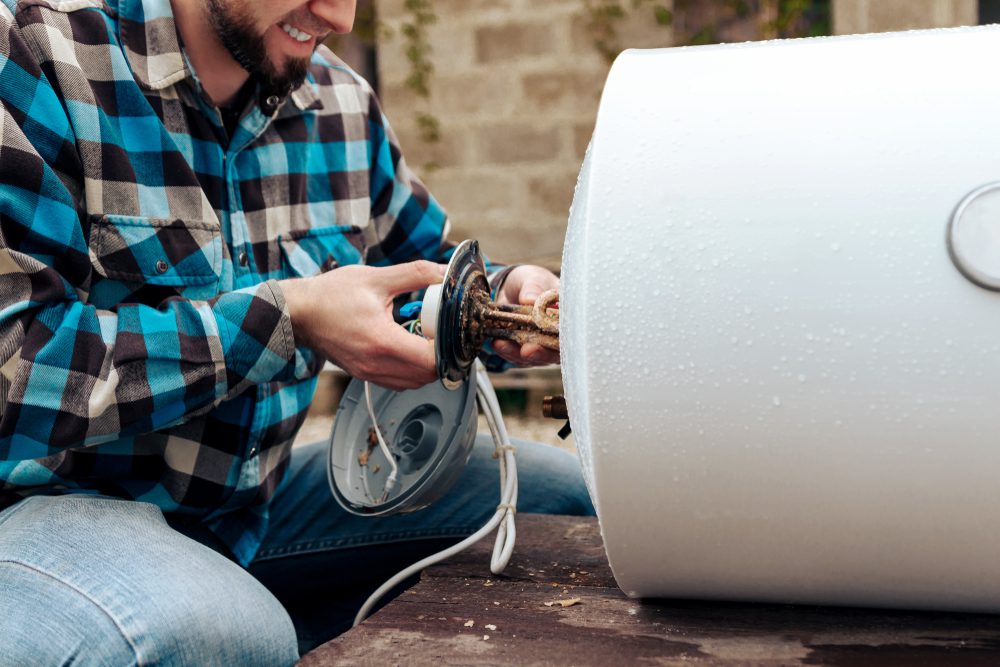Almost everyone seems to have their personal piece of advice involving Common Hot Water Heater Problems.

A water heater is one of one of the most important fundamental devices that can be found in a home. With hot water heater, you don't need to go through the stress and anxiety of heating water by hand every time there is a demand to wash, do the laundry, or the meals. There is constantly a possibility that your water heating unit would certainly act up as with many mechanical tools.
It is essential to keep in mind any kind of little breakdown and tackle it swiftly prior to points leave hand. A lot of times, your water heater starts to malfunction when there is an accumulation of debris as a result of continuous use. As a precaution, regular flushing of your hot water heater is advised to prevent sediment build-up and avoid practical failure.
Typical hot water heater emergency situations and just how to handle them
Leaking water heater tank.
In this scenario, you must turn off your water heater, enable it to cool down, and also meticulously look for the resource of the issue. At times, all you need to do is to tighten up a couple of screws or pipe links in situations of minor leakages. If this does not function and also the leakage persists, you could need to use the services of a technician for a proper substitute.
Changing water temperature.
Your water heating system could begin producing water of various temperature levels typically ice cool or scalding warm. There may be a demand to replace either the home heating or the thermostat system of your water heating system.
Too little warm water
Managing a not enough supply of hot water can be aggravating. It might be that the hot water heater can not support the hot water need for your apartment or condo. To handle this trouble, you could attempt to adjust your heating unit's temperature level dial and await a couple of mins. You can ask for the assistance of a specialist plumber if the problem persists. Alternatively, you can upgrade your water heater to one with a bigger capability.
Blemished or stinky water
When this occurs, you require to understand if the issue is from the water or the tank resource. If there is no amusing odor when you run cold water, after that you are specific that it is your water heating unit that is malfunctioning. The stinky water can be caused by corrosion or the buildup of germs or sediments in the water heater container.
Final thought
Some homeowners disregard little caution and also minor faults in their hot water heater system. This only brings about further damages as well as a possible full malfunction of your appliance. You need to take care of your water heater mistakes as soon as they come near prevent even more costs and unneeded emergency troubles.
With water heating systems, you don't require to go with the stress and anxiety of heating water by hand every time there is a requirement to take a bathroom, do the laundry, or the recipes. Your water heating unit can start generating water of different temperatures typically ice cool or hot warm. It may be that the water heating system can't sustain the hot water need for your home. If there is no funny scent when you run chilly water, after that you are certain that it is your water heater that is defective. The odiferous water can be caused by rust or the accumulation of germs or debris in the water heater storage tank.
Common Water Heater Issues and What You Should Do
What Type of Water Heater Do You Have?
Before we begin it’s first important that you identify the type of water heater you have on your property. There are two main types of water heaters out there: conventional and high efficiency.
Both of these types of products typically use either gas or electricity to heat power. There are also solar water heaters that use a thermal collector on the roof or yard to heat the water.
While these models are not as common, they can cut heating costs in half. In this article, we will focus on conventional and high efficiency.
How Do My Electric and Gas Water Heater Work?
Though they look similar, electric and gas water heaters work very differently. It’s important to know their basic function because often problems can be specific to the heating source.
In the electric model, a thermostat on the side of the machine detects the temperature of the water in the tank. When the temperature needs to rise electricity flows to a heating element suspended in the water.
Gas models also use a thermostat device — typically with a mercury sensor at the tip and an additional sensor called a thermocouple. The thermocouple detects whether the pilot light is on and controls the flow of gas.
When the thermostat drops below the appropriate level gas is released which becomes ignited by the pilot light. The flame heats the bottom of the water tank which causes hot water to rise and cold water to drop.
This natural circulation continues until the water reaches the desired temperature. Then, the thermostat triggers the gas control valve to shut off the flow of gas.
What Are the Most Common Issues and How Do You Fix Them?
https://happyhiller.com/blog/common-water-heater-issues-and-what-you-should-do/

I was made aware of that article on Is Your Water Heater Leaking? from an acquaintance on our other website. Remember to take the opportunity to share this blog entry if you enjoyed it. I treasure reading our article about Warning Signs You Need Water Heater Repairs.
Save time, dial!